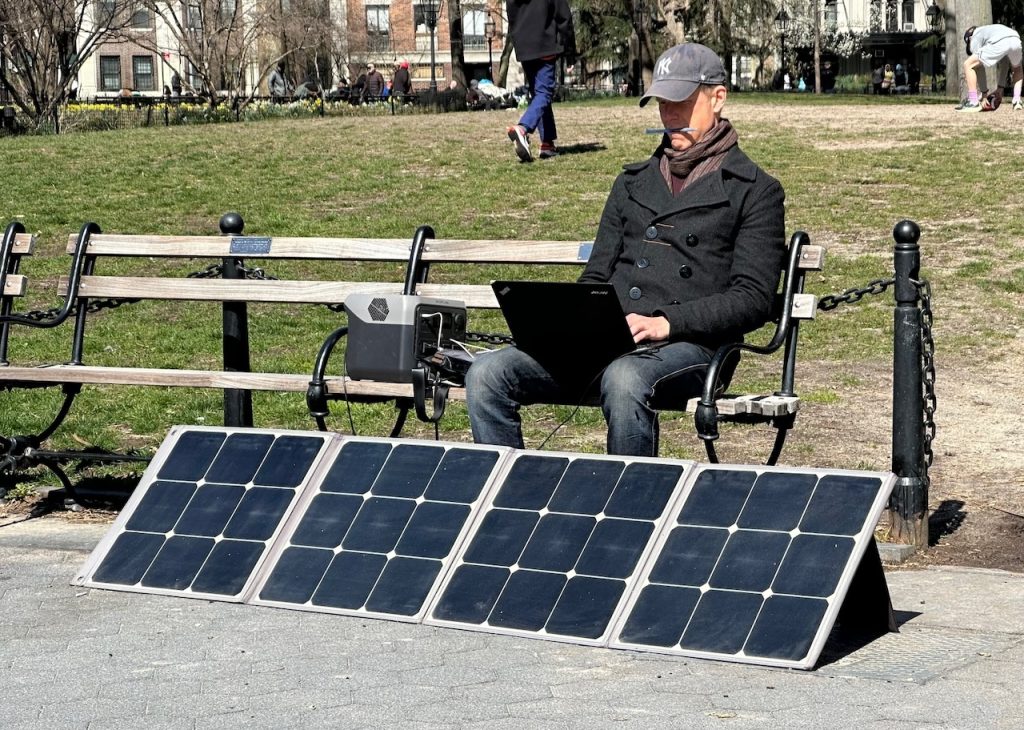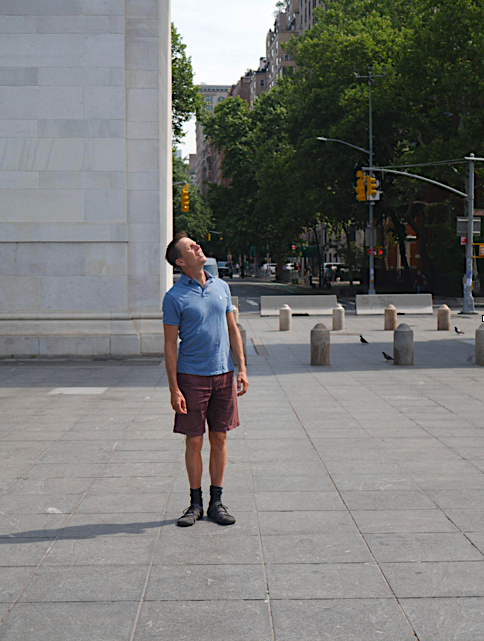BY OTTO FRITTON | Often humans struggle to understand their impact upon a larger humanity, making the prospect of changing their mindset and committing to environmental sustainability daunting. After all, what can one person do, if anything, that will have an impact on others in a world of 8 billion people?
According to Josh Spodek, though, the answer to the question “what can one person do?” is not as bleak as some might think. Basically, Spodek believes that many people just don’t give themselves a chance. Much of the media and messaging about sustainability, he said, is misleading and discouraging to individuals looking to live in a more environmentally conscious manner.
“What got me leading others was when I discovered that the change benefitted me directly,” Spodek explained. “Every message I had ever heard on sustainability, on the environment was that we have to sacrifice.”
Spodek, who lives in Greenwich Village, believes that by equating change to sacrifice, we intimidate and demotivate ourselves. However, by taking a more disciplined and rational approach — which he labels the Spodek Method — changing our approach and attitude becomes synonymous with something positive: reward.
“I asked myself, what can I do, how much can I give up?” he explained. “And then, I actually realized through these experiments that it was not a sacrifice. By not believing all of this misconception, I wasn’t so isolated anymore.”
An environmentalist and sustainability expert, Josh Spodek is an adjunct professor at New York University. Holding a Ph.D. in astrophysics as well as an MBA from Columbia — where he helped to launch a satellite — Spodek hosts the award-winning “This Sustainable Life” podcast. He is a four-time TEDx speaker, bestselling author of “Initiative and Leadership Step by Step” and leadership coach.
During a recent interview under the Washington Square Arch, Spodek explained the Spodek Method, a mindset shift that, he says, leads to gradual improvement, plus a desire to lead an environmentally friendly life.

As stated on his Web site, his eponymous method seeks to help empower people by focusing on their enthusiasm and intrinsic motivation. The method deviates from a “mainstream mindset,” and instead seeks to respect others’ “life, liberty and property,” all while fostering freedom, joy, fun, connection, community, meaning and purpose, among other things.
A core belief of the Spodek Method is that human beings carry an individual responsibility, not simply toward our planet, but toward the individuals that their negative actions would otherwise impact. Instead of viewing the future as a black-and-white, binary concept — as in, if we don’t save ourselves, we collapse — the method instead focuses on those elements that within our control. In other words, there are differing levels of disaster, and our actions can lessen others’ suffering.
An example of individual responsibility is choosing not to fly, something Spodek has not done since 2016. As Spodek put it, although the action of buying a plane ticket and flying may be seen as second nature, it directly impacts other humans, who are harmed by the plane’s carbon fuel emissions.
Explaining his motivation for these actions, Spodek attributed it to a commitment toward other human beings and not necessarily the environment.
“When I’m acting, I’m not acting for some abstract environment,” he stated. “I’m acting for my effect on other human beings… . I started doing this to reduce my harming of other innocent people. If that is all I could do, I would be fine; I would try to minimize my actions toward people who weren’t consenting to be hurt by me.”
In addition to not flying, Spodek doesn’t just talk the talk — he walks the walk. In the last five years, he personally has produced just a single bag of garbage — with one bag in 2019, and zero from then through today. Having disconnected his apartment from the electrical grid, he has consistently produced a carbon footprint of about one ton per year. For more than 2,500 consecutive days, he has picked up at least one piece of litter.
(On a personal fitness level, he has done more than 227,000 burpees — a type of squat thrust — “and counting,” and his resting pulse is an impressively low 47 beats per minute. His average daily cost spent on fitness: under 2 cents.)
Spodek recognizes that there is a steep learning curve to reach this personal level of sustainability.
He revealed that, initially, he hoped to fail, to label the lofty goal impossible.
“I had no role models,” he recalled. “I didn’t begin with a passion or a belief in myself. Truth be told, when I challenged myself to go without packaged food for a week, I wanted to fail. I wanted to find out that this was too hard, that this wasn’t worth it, so then I could give up, and say that now I don’t have to try anymore.”
However, Spodek persevered. Finding joy, satisfaction and fulfillment in an environmentally committed mindset, he believes that, in fact, he is not making sacrifices daily, and instead feels powerful and independent. When asked about his dedication and discipline, Spodek chalked up most of his success to the system he developed.
“The Spodek Method is the best answer,” he said. “It stresses practice, practice, practice, as one would in a sport. The one big difference with sustainability is that not everyone likes playing tennis — but everyone prefers clean air to polluted air.”


How was he able to take his apartment off the grid?
Hi, Josh here. My apartment has a circuit box and one of the circuits is the main one for the whole apartment. I just disconnected it.
I wrote up some of my experience after six months in TIME: https://time.com/6228967/living-off-grid-in-new-york-city. I’ve learned a lot since then too through experience.